Photo: Simone Joyner/Getty Images
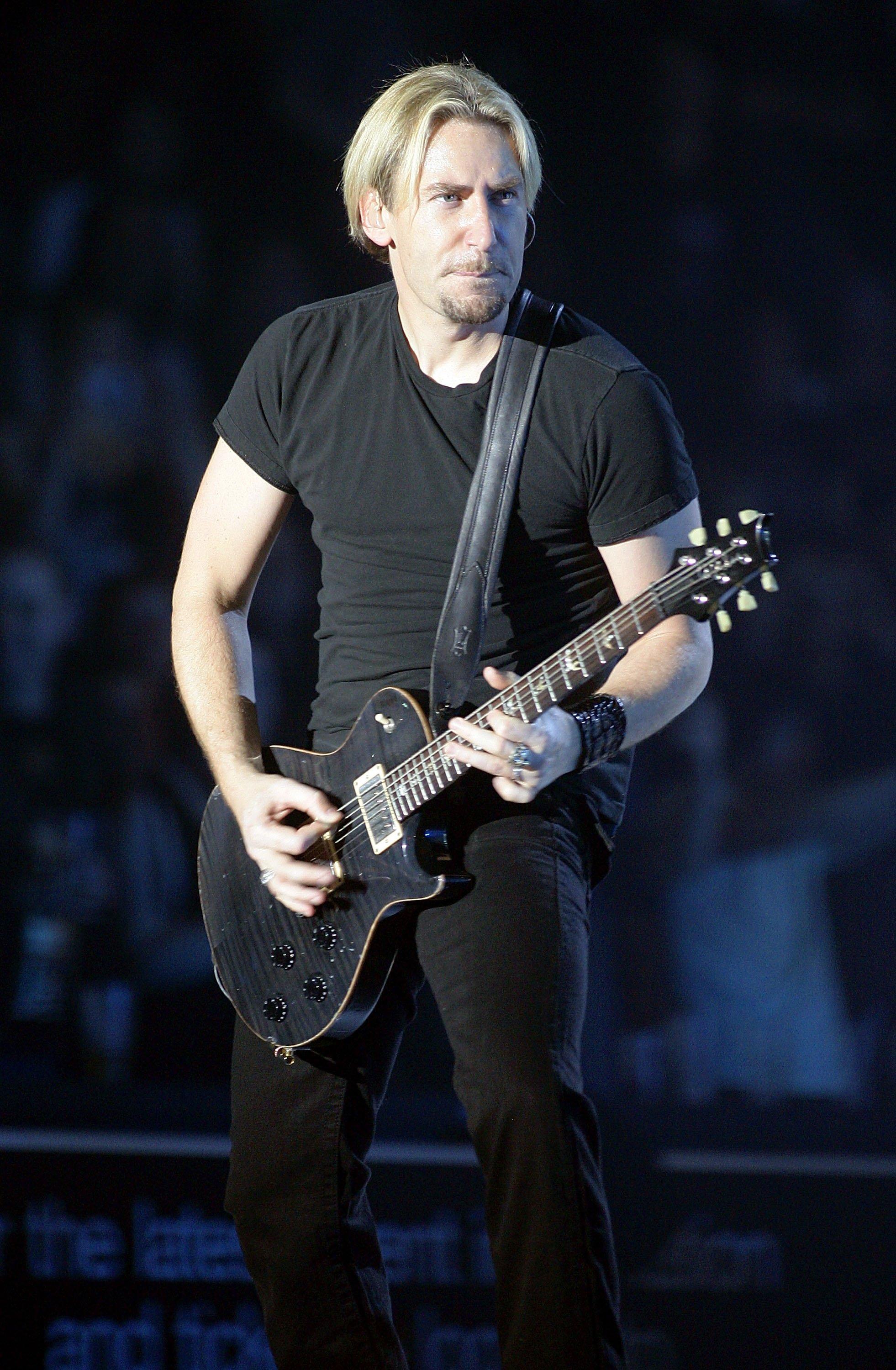
news
The Week In Music: Nickelback Assaulted Via Twitter
Canadian rockers battle it out with detractors, tweet-y-tweet
When recalling the frostiest music feuds of all time, Guns N' Roses vs. Nirvana, Moby vs. Eminem, Biggie vs. Tupac, and Gallagher vs. Gallagher immediately come to mind. But the Black Keys' recent verbal assault of Nickelback may be a candidate to shoot to the top of the war list, with an assist from Twitter. It all started in early January when Black Keys drummer Patrick Carney took the opportunity to denigrate the Canadian rockers in a Rolling Stone interview: "Rock and roll is dying because people became OK with Nickelback being the biggest band in the world. So they became OK with the idea that the biggest rock band in the world is always going to be s***. …" This dart may have been the inspiration behind a series of Twitter insults aimed at the Canadian rockers, with one fan recently tweeting: "Was driving down the street, and a @Nickelback song came on. I had an aneurism and violently s*** myself at the same time. And my dog died." Proving they're not afraid of their detractors, Chad Kroeger and Co. tweeted back: "I bet it was the best day you've had in awhile. #yourwelcome." A second fan fired another round, tweeting that hearing a Nickelback song was worse than hearing Rebecca Black, followed by the hashtag #earsbleeding. Nickelback's reply? "Then it's working?!?!? Sweet!" We'll be monitoring this Twitter tussle to see if the repartee continues to fly. Meanwhile, we offer a peaceful thought in the form of Nickelback's "If Everyone Cared."
While Music's Biggest Night, the 54th Annual GRAMMY Awards, is just two weeks away, on Feb. 5 all eyes will be on Super Bowl XLVI. But the game between the New England Patriots and New York Giants won't be the only action on the table. Rapper/producer Brian "Birdman" Williams is thinking the Tom Brady-led Patriots will emerge victorious, and he's looking to put his money where his mouth is. "I like New ENGLaNd.my nephew play RB# 42.I'm Bet 5million 2 any n-.like tha Giants YMCMB.BabyMoney anybody kan Getit," Birdman tweeted cryptically. Translating the message, it seems Birdman is planning to bet on the Patriots to the tune of $5 million. While that's big money to the rest of us nonbird folk, it's chump change to the rapper, who usually walks around sporting $1 million worth of jewelry and orthodontia bling. And it turns out the Birdman likes to gamble big. Last year, he cashed in $1 million on the Super Bowl, when he bet the Green Bay Packers would win, though he did lose $2 million on the NBA Finals when the Miami Heat were defeated by the Dallas Mavericks. Interestingly, Birdman recently claimed he is a New Orleans Saints fan. It's just more proof that when it comes to sports wagers, all loyalty is off.
What do Metallica's James Hetfield and Hulk Hogan have in common? They're both muscular (one maybe more than the other). They both have machinelike skills that can put fire ablaze in the hearts of metal and wrestling fans alike. And they both (at one point) had blond hair. Oh, and both of their last names begin with H. But Hetfield and Hogan may have more in common as the famed wrestling champion recently revealed to The Sun that he almost joined an early version of Metallica. "I used to be a session musician before I was a wrestler," Hogan said. "I played bass guitar. I was big pals with Lars Ulrich and he asked me if I wanted to play bass with Metallica in their early days, but it didn't work out." Speaking on the topic of music, Hogan also mentioned indie rock quartet Kasabian, who have been known to check into hotel rooms under the Hulk's name. "I heard about these guys," Hogan said. "They [had] made a show about UK wrestling in the '80s called 'Walk Like A Panther.' I know Rollerball Rocco, he's in it. He's my guy. I'll be his tag partner and sort them out for trashing hotel rooms under my name." Let this be a lesson: Never check into a hotel under the name Hulk Hogan, and if you're given a chance to perform with Metallica, take it.
Clearly rapper/actor Ice-T hasn't been wasting any time watching the dozens (and dozens …) of Republican presidential debates. He believes President Barack Obama will extend his stay in the White House, and he's already got his candidate picked for 2016: Hillary Clinton. "She did the Secretary of State job, she was a 'G,' she held it down, she didn't cry," -T said at the 2012 Sundance Film Festival, where he's promoting his directorial debut, the documentary Something From Nothing: The Art Of Rap. "Obama will support her and she'll be the first woman president." Just one problem: Clinton may not support herself. She announced Thursday to Department of State staffers that she was tired of "the high wire of American politics," and would not re-up with the Obama administration. Ice-T may already be looking for a new "G" to support for president, but at least he can take solace in the fact that Clinton didn't shed any tears during her address.
If you're looking for new music and a good cause to support (and have an extra five-and-a-half hours to spare), you might consider picking up the newly released Chimes Of Freedom — The Songs Of Bob Dylan (Honoring 50 Years Of Amnesty International). The four-disc set is one of the largest charity compilations in recent history as it features 76 Bob Dylan covers by artists ranging from Adele and TWIM favorites Miley Cyrus and Ke$ha, to Diana Krall, Sinéad O'Connor and Pete Seeger. Cyrus has clearly come a long way from her "Hannah Montana" days and performs a country-tinged cover of Dylan's early sorrowful recording "You're Gonna Make Me Lonesome When You Go". And Ke$ha puts down her bottle of Jack to turn in a stripped-down, (literally) tearful version of "Don't Think Twice, It's All Right." Craving more covers? You can preview the entire album here.
Adele's "Set Fire To The Rain" is No. 1 on the Billboard Hot 100 and Kelly Clarkson's "Stronger (What Doesn't Kill You)" is tops on the iTunes singles chart.
Any news we've missed? Comment below.
For the latest GRAMMY news, visit us on Facebook, Twitter and YouTube.
Last Week In Music

Photo: Jeremy Cowart
interview
Behind Ryan Tedder's Hits: Stories From The Studio With OneRepublic, Beyoncé, Taylor Swift & More
As OneRepublic releases their latest album, the group's frontman and pop maverick gives an inside look into some of the biggest songs he's written — from how Beyoncé operates to Tom Cruise's prediction for their 'Top Gun' smash.
Three months after OneRepublic began promoting their sixth album, Artificial Paradise, in February 2022, the band unexpectedly had their biggest release in nearly a decade. The pop-rock band's carefree jam, "I Ain't Worried," soundtracked Top Gun: Maverick's most memeable scene and quickly became a global smash — ultimately delaying album plans in favor of promoting their latest hit.
Two years later, "I Ain't Worried" is one of 16 tracks on Artificial Paradise, which arrived July 12. It's a seamless blend of songs that will resonate with longtime and newer fans alike. From the layered production of "Hurt," to the feel-good vibes of "Serotonin," to the evocative lyrics of "Last Holiday," Artificial Paradise shows that OneRepublic's sound is as dialed-in as it is ever-evolving.
The album also marks the end of an era for OneRepublic, as it's the last in their contract with Interscope Records. But for the group's singer, Ryan Tedder, that means the future is even more exciting than it's been in their entire 15-year career.
"I've never been more motivated to write the best material of my life than this very moment," he asserts. "I'm taking it as a challenge. We've had a lot of fun, and a lot of uplifting records for the last seven or eight years, but I also want to tap back into some deeper material with the band."
As he's been prepping Artificial Paradise with his OneRepublic cohorts, Tedder has also been as busy as he's ever been working with other artists. His career as a songwriter/producer took off almost simultaneously with OneRepublic's 2007 breakthrough, "Apologize" (his first major behind-the-board hit was Leona Lewis' "Bleeding Love"); to this day he's one of the go-to guys for pop's biggest names, from BLACKPINK to Tate McRae.
Tedder sat down with GRAMMY.com to share some of his most prominent memories of OneRepublic's biggest songs, as well as some of the hits he's written with Beyoncé, Adele, Taylor Swift and more.
OneRepublic — "Apologize," 'Dreaming Out Loud' (2007)
I was producing and writing other songs for different artists on Epic and Atlantic — I was just cutting my teeth as a songwriter in L.A. This is like 2004. I was at my lowest mentally and financially. I was completely broke. Creditors chasing me, literally dodging the taxman and getting my car repoed, everything.
I had that song in my back pocket for four years. A buddy of mine just reminded me last month, a songwriter from Nashville — Ashley Gorley, actually. We had a session last month, me, him and Amy Allen, and he brought it up. He was like, "Is it true, the story about 'Apologize'? You were completely broke living in L.A. and Epic Records offered you like 100 grand or something just for the right to record the song on one of their artists?"
And that is true. It was, like, 20 [grand], then 50, then 100. And I was salivating. I was, like, I need this money so bad. And I give so many songs to other people, but with that song, I drew a line in the sand and said, "No one will sing this song but me. I will die with this song."
It was my story, and I just didn't want anyone else to sing it. It was really that simple. It was a song about my past relationships, it was deeply personal. And it was also the song that — I spent two years trying to figure out what my sound was gonna be. I was a solo artist… and I wasn't landing on anything compelling. Then I landed on "Apologize" and a couple of other songs, and I was like, These songs make me think of a band, not solo artist material. So it was the song that led me to the sound of OneRepublic, and it also led me to the idea that I should start a band and not be a solo artist.
We do it every night. I'll never not do it. I've never gotten sick of it once. Every night that we do it, whether I'm in Houston or Hong Kong, I look out at the crowd and look at the band, and I'm like, Wow. This is the song that got us here.
Beyoncé — "Halo," 'I Am…Sacha Fierce' (2008)
We were halfway through promoting Dreaming Out Loud, our first album. I played basketball every day on tour, and I snapped my Achilles. The tour got canceled. The doctor told me not to even write. And I had this one sliver of an afternoon where my wife had to run an errand. And because I'm sadistic and crazy, I texted [songwriter] Evan Bogart, "I got a three-hour window, race over here. Beyoncé called me and asked me to write her a song. I want to do it with you." He had just come off his huge Rihanna No. 1, and we had an Ashley Tisdale single together.
When you write enough songs, not every day do the clouds part and God looks down on you and goes, "Here." But that's what happened on that day. I turn on the keyboard, the first sound that I play is the opening sound of the song. Sounds like angels singing. And we wrote the song pretty quick, as I recall.
I didn't get a response [from Beyoncé after sending "Halo" over], which I've now learned is very, very typical of her. I did Miley Cyrus and Beyoncé "II MOST WANTED" [from COWBOY CARTER] — I didn't know that was coming out 'til five days before it came out. And when I did "XO" [from 2013's Beyoncé], I found out that "XO" was coming out 12 hours before it came out. That's how she operates.
OneRepublic — "Good Life," 'Waking Up' (2009)
["Good Life"] was kind of a Hail Mary. We already knew that "All the Right Moves" would be the first single [from Waking Up]. We knew that "Secrets" was the second single. And in the 11th hour, our engineer at the time — who I ended up signing as a songwriter, Noel Zancanella — had this drum loop that he had made, and he played it for Brent [Kutzle] in our band. Brent said, "You gotta hear this drum loop that Noel made. It's incredible."
He played it for me the next morning, and I was like, "Yo throw some chords to this. I'm writing to this today." They threw some chords down, and the first thing out of my mouth was, [sings] "Oh, this has gotta be the good life."
It's the perfect example of, oftentimes, the chord I've tried to strike with this band with some of our bigger records, [which] is happy sad. Where you feel nostalgic and kind of melancholic, but at the same time, euphoric. That's what those chords and that melody did for me.
I was like, "Hey guys, would it be weird if I made the hook a whistle?" And everyone was like, "No! Do not whistle!" They're like, "Name the last hit song that had a whistle." And the only one I could think of was, like, Scorpion from like, 1988. [Laughs.] So I thought, To hell with it, man, it's been long enough, who cares? Let's try it. And the whistle kind of made the record. It became such a signature thing.
Adele — "Rumour Has It," '21' (2011)
"Rumour Has It" was the first song I did in probably a four year period, with any artist, that wasn't a ballad. All any artist ever wanted me to write with them or for them, was ballads, because of "Halo," and "Apologize" and "Bleeding Love."
I begged [Adele] to do a [song with] tempo, because we did "Turning Tables," another ballad. She was in a feisty mood [that day], so I was like, "Okay, we're doing a tempo today!"
Rick Rubin was originally producing the whole album. I was determined to produce Adele, not just write — because I wanted a shot to show her that I could, and to show myself. I stayed later after she left, and I remember thinking, What can I do in this record in this song that could be so difficult to reproduce that it might land me the gig?
So I intentionally muted the click track, changed the tempo, and [created that] whole piano bridge. I was making it up as I went. When she got in that morning. I said, "I have a crazy idea for a bridge. It's a movie." She listens and she says, "This is really different, I like this! How do we write to this?"
I mean, it was very difficult. [But] we finished the song. She recorded the entire song that day. She recorded the whole song in one take. I've never seen anyone do that in my life — before or since.
Then I didn't hear from her for six months. Because I handed over the files, and Rick Rubin's doing it, so I don't need to check on it. I randomly check on the status of the song — and at this point, if you're a songwriter or producer, you're assuming that they're not keeping the songs. Her manager emails my manager, "Hey, good news — she's keeping both songs they did, and she wants Ryan to finish 'Rumour Has It' production and mix it."
When I finally asked her, months later — probably at the GRAMMYs — I said, "Why didn't [Rick] do it?" She said, "Oh he did. It's that damn bridge! Nobody could figure out what the hell you were doing…It was so problematic that we just gave up on it."
OneRepublic — "Counting Stars," 'Native' (2013)
I was in a Beyoncé camp in the Hamptons writing for the self-titled album. [There were] a bunch of people in the house — me, Greg Kurstin, Sia — it was a fun group of people. I had four days there, and every morning I'd get up an hour and a half before I had to leave, make a coffee, and start prepping for the day. On the third day, I got up, I'm in the basement of this house at like 7 in the morning, and I'm coming up with ideas. I stumble across that chord progression, the guitar and the melody. It was instant shivers up my spine.
"Lately I've been losing sleep, dreaming about the things that we could be" is the only line that I had. [My] first thought was, I should play this for Beyoncé, and then I'm listening to it and going, This is not Beyoncé, not even remotely. It'd be a waste. So I tabled it, and I texted the guys in my band, "Hey, I think I have a potentially really big record. I'm going to finish it when I get back to Denver."
I got back the next week, started recording it, did four or five versions of the chorus, bouncing all the versions off my wife, and then eventually landed it. And when I played it for the band, they were like, "This is our favorite song."
Taylor Swift — "Welcome to New York," '1989' (2014)
It was my second session with Taylor. The first one was [1989's] "I Know Places," and she sent me a voice memo. I was looking for a house in Venice [California], because we were spending so much time in L.A. So that whole memory is attached to me migrating back to Los Angeles.
But I knew what she was talking about, because I lived in New York, and I remember the feeling — endless possibilities, all the different people and races and sexes and loves. That was her New York chapter. She was so excited to be there. If you never lived there, and especially if you get there and you've got a little money in the pocket, it is so exhilarating.
It was me just kind of witnessing her brilliant, fast-paced, lyrical wizardry. [Co-producer] Max [Martin] and I had a conversation nine months later at the GRAMMYs, when we had literally just won for 1989. He kind of laughed, he pointed to all the other producers on the album, and he's like, "If she had, like, three more hours in the day, she would just figure out what we do and she would do it. And she wouldn't need any of us."
And I still think that's true. Some people are just forces of nature in and among themselves, and she's one of them. She just blew me away. She's the most talented top liner I've ever been in a room with, bar none. If you're talking lyric and melody, I've never been in a room with anyone faster, more adept, knows more what they want to say, focused, efficient, and just talented.
Jonas Brothers — "Sucker," 'Happiness Begins' (2019)
I had gone through a pretty dry spell mentally, emotionally. I had just burned it at both ends and tapped out, call it end of 2016. So, really, all of 2017 for me was a blur and a wash. I did a bunch of sessions in the first three months of the year, and then I just couldn't get a song out. I kept having, song after song, artists telling me it's the first single, [then] the song was not even on the album. I had never experienced that in my career.
I went six to nine months without finishing a song, which for me is unheard of. Andrew Watt kind of roped me back into working with him. We did "Easier" for 5 Seconds of Summer, and we did some Sam Smith and some Miley Cyrus, and right in that same window, I did this song "Sucker." Two [or] three months later, Wendy Goldstein from Republic [Records] heard the record, I had sent it to her. She'd said, very quietly, "We're relaunching the Jonas Brothers. They want you to be involved in a major way. Do you have anything?"
She calls me, she goes, "Ryan, do not play this for anybody else. This is their comeback single. It's a No. 1 record. Watch what we're gonna do." And she delivered.
OneRepublic — "I Ain't Worried," 'Top Gun: Maverick' Soundtrack (2022)
My memory is, being in lockdown in COVID, and just being like, Who knows when this is going to end, working out of my Airstream at my house. I had done a lot of songs for movies over the years, and [for] that particular [song] Randy Spendlove, who runs [music at] Paramount, called me.
I end up Zooming with Tom Cruise [and Top Gun: Maverick director] Jerry Bruckheimer — everybody's in lockdown during post-production. The overarching memory was, Holy cow, I'm doing the scene, I'm doing the song for Top Gun. I can't believe this is happening. But the only way I knew how to approach it, rather than to, like, overreact and s— the bed, was, It's just another day.
I do prescription songs for movies, TV, film all the time. I love a brief. It's so antithetical to most writers. I'm either uncontrollably lazy or the most productive person you've ever met. And the dividing line between the two is, if I'm chasing some directive, some motivation, some endpoint, then I can be wildly productive.
I just thought, I'm going to do the absolute best thing I can do for this scene and serve the film. OneRepublic being the performing artist was not on the menu in my mind. I just told them, "I think you need a cool indie band sounding, like, breakbeat." I used adjectives to describe what I heard when I saw the scene, and Tom got really ramped and excited.
You could argue [it's the biggest song] since the band started. The thing about it is, it's kind of become one of those every summer [hits]. And when it blew up, that's what Tom said. He said, "Mark my words, dude. You're gonna have a hit with this every summer for, like, the next 20 years or more."
And that's what happened. The moment Memorial Day happened, "I Ain't Worried" got defrosted and marched itself back into the top 100.
Tate McRae — "Greedy," 'THINK LATER' (2023)
We had "10:35" [with Tiësto] the previous year that had been, like, a No. 1 in the UK and across Europe and Australia. So we were coming off the back of that, and the one thing she was clear about was, "That is not the direction of what I want to do."
If my memory serves me correct, "greedy" was the next to last session we had. Everything we had done up to that point was kind of dark, midtempo, emotional. So "greedy" was the weirdo outlier. I kept pushing her to do a dance record. I was like, "Tate, there's a lot of people that have great voices, and there's a lot of people who can write, but none of those people are professional dancers like you are. Your secret weapon is the thing you're not using. In this game and this career, you've got to use every asset that you have and exploit it."
There was a lot of cajoling. On that day, we did it, and I thought it was badass, and loved it. And she was like, "Ugh, what do we just do? What is this?"
So then it was just, like, months, months and months of me constantly bringing that song back up, and playing it for her, and annoying the s— out of her. And she came around on it.
She has very specific taste. So much of the music with Tate, it really is her steering. I'll do what I think is like a finished version of a song, and then she will push everyone for weeks, if not months, to extract every ounce of everything out of them, to push the song harder, further, edgier — 19 versions of a song, until finally she goes, "Okay, this is the one." She's a perfectionist.
OneRepublic — "Last Holiday," 'Artificial Paradise' (2024)
I love [our latest single] "Hurt," but my favorite song on the album is called "Last Holiday." I probably started the beginning of that lyric, I'm not joking, seven, eight years ago. But I didn't finish it 'til this past year.
The verses are little maxims and words of advice that I've been given throughout the years. It's almost cynical in a way, the song. When I wrote the chorus, I was definitely in kind of a down place. So the opening line is, "So I don't believe in the stars anymore/ They never gave me what I wished for." And it's, obviously, a very not-so-slight reference to "Counting Stars." But it's also hopeful — "We've got some problems, okay, but this isn't our last holiday."
It's very simple sentiments. Press pause. Take some moments. Find God before it all ends. All these things with this big, soaring chorus. Musically and emotionally and sonically, that song — and "Hurt," for sure — but "Last Holiday" is extremely us-sounding.
The biggest enemy that we've had over the course of 18 years, I'll be the first to volunteer, is, this ever-evolving, undulating sound. No one's gonna accuse me of making these super complex concept albums, because that's just not how my brain's wired. I grew up listening to the radio. I didn't grow up hanging out in the Bowery in CBGBs listening to Nick Cave. So for us, the downside to that, and for me doing all these songs for all these other people, is the constant push and pull of "What is their sound? What genre is it?"
I couldn't put a pin in exactly what the sound is, but what I would say is, if you look at the last 18 years, a song like "Last Holiday" really encompasses, sonically, what this band is about. It's very moving, and emotional, and dynamic. It takes me to a place — that's the best way for me to put it. And hopefully the listener finds the same.
Latest News & Exclusive Videos

2024 Paris Olympics Opening Ceremony: Watch Celine Dion, Lady Gaga, Gojira & More Perform

Ice Spice Is The Drill Queen On 'Y2K!': 5 Takeaways From Her Debut Album

New Music Friday: Listen To New Songs From Halsey, MGK And Jelly Roll, XG & More

Watch Young MC Win Best Rap Performance In 1990

The Red Clay Strays Offer A New Kind Of Religion With 'Made By These Moments'
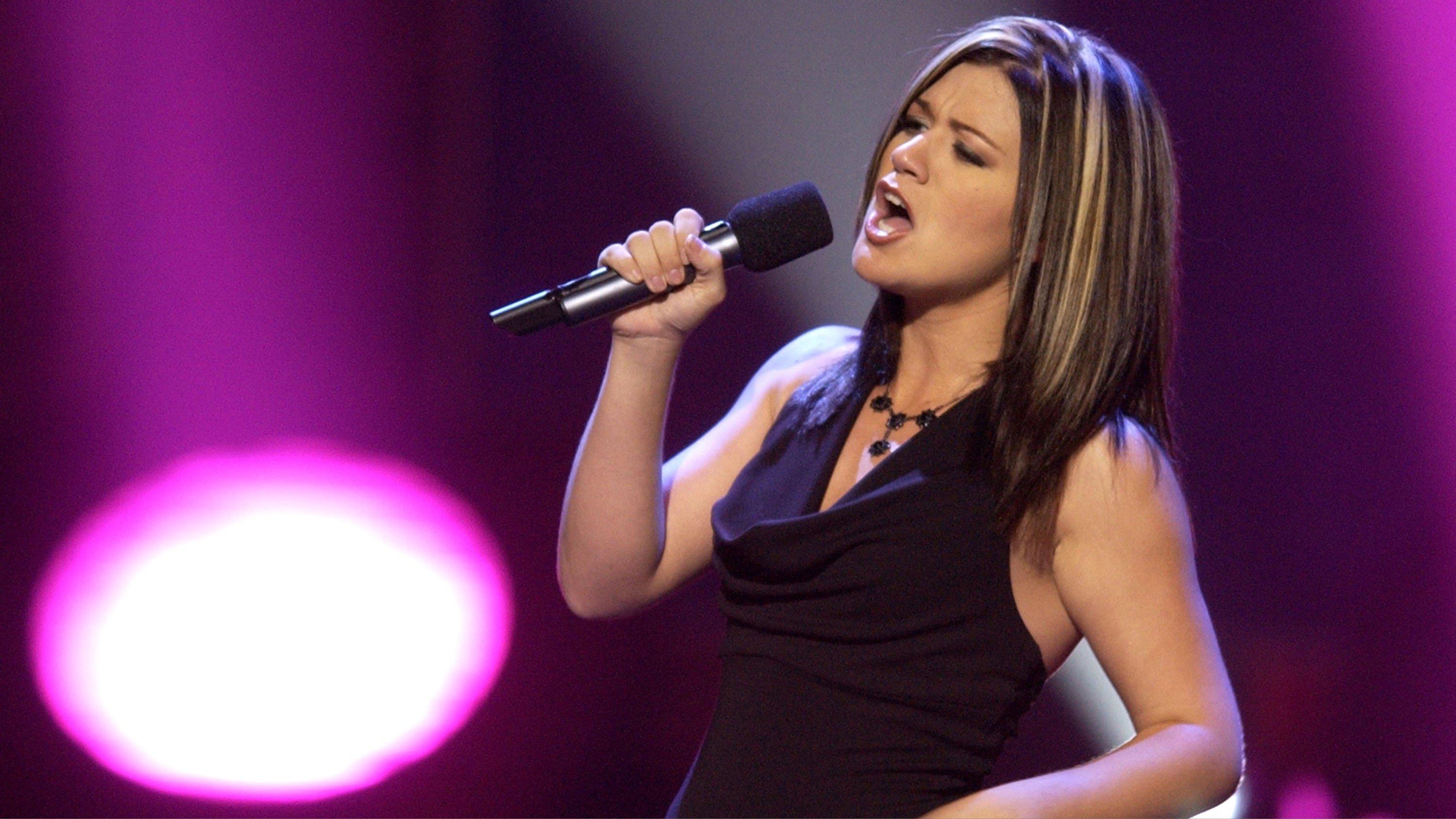
Photo: Steve Granitz / GettyImages
news
On This Day In Music: "American Idol" Premieres On Fox Network
For decades, "American Idol" has been instrumental in discovering some of music’s biggest names and pioneering the reality TV contest genre. As the show enters its 22nd run, here’s a look at how it has become an iconic household staple across the country.
For countless Americans, "American Idol" is intertwined with core memories as a show that had families eagerly glued to their TVs twice a week. It brought generations together, creating moments of both suspense and excitement that are still remembered today, as the show continues to run in its 22nd season.
Created by visionary entrepreneur Simon Fuller, "American Idol" premiered on June 11, 2002, as a fresh spin-off of the British program "Pop Idol." It revolutionized how Americans engaged with reality TV through its interactive, viewer-driven voting system, which encouraged audience participation in the success of their favorite contestants. The show also offered viewers a glimpse into contestants' candid backstories and personal journeys, anchoring emotional investment and skyrocketing the show's popularity.
The show's debut season featured a dynamic trio of judges: singer Paula Abdul, TV personality Simon Cowell, and producer Randy Jackson. Their contrasting personalities brewed a chemistry as captivating as the hopeful performances. Abdul’s warmth, Cowell's blunt wit, and Jackson’s humor added extra layers of entertainment, making the twice a week broadcasts a must-watch.
The first season of "American Idol" also unforgettably introduced the country to Kelly Clarkson. Since her debut — with a heart-tugging backstory about being the average girl-next-door with big dreams — Clarkson has gone on to tour the world, host her own TV talk show, and secured her spot as one of music’s most beloved talents.
"I had dreams since I was a little girl that I wanted to be on the GRAMMYs, or some award show and sing on there," Clarkson mentioned in her pre-audition interview. Flash forward 22 years, the pop singer has accumulated 17 GRAMMY nominations and three wins, propelled by a powerful vocal gift.
Other artists who launched their careers from the show's platform include Jordin Sparks, Carrie Underwood, Adam Lambert, and Jennifer Hudson, who each serve as testament to the show’s impact in music.
"American Idol" has not only opened our eyes to some of our favorite musicians, but it also has given us some of our favorite pop culture moments.
A video that frequently resurfaces on social media captures a memorable moment between Katy Perry and contestant Noah Davis, where they bond over the slang term 'wig'.
"No, it’s not your language. It’s just for us," Perry joked to her fellow judges, Lionel Richie and Luke Bryan, when they questioned the term’s meaning.
After two decades on air, "American Idol" has etched a lasting legacy in pop culture. It has paved the way for other reality TV music shows and created lasting memories for music fans along the way.
“The show transcends age, gender, ethnicity, everything,” Underwood told Billboard in 2005.
Explore More History-Making Moments In Music
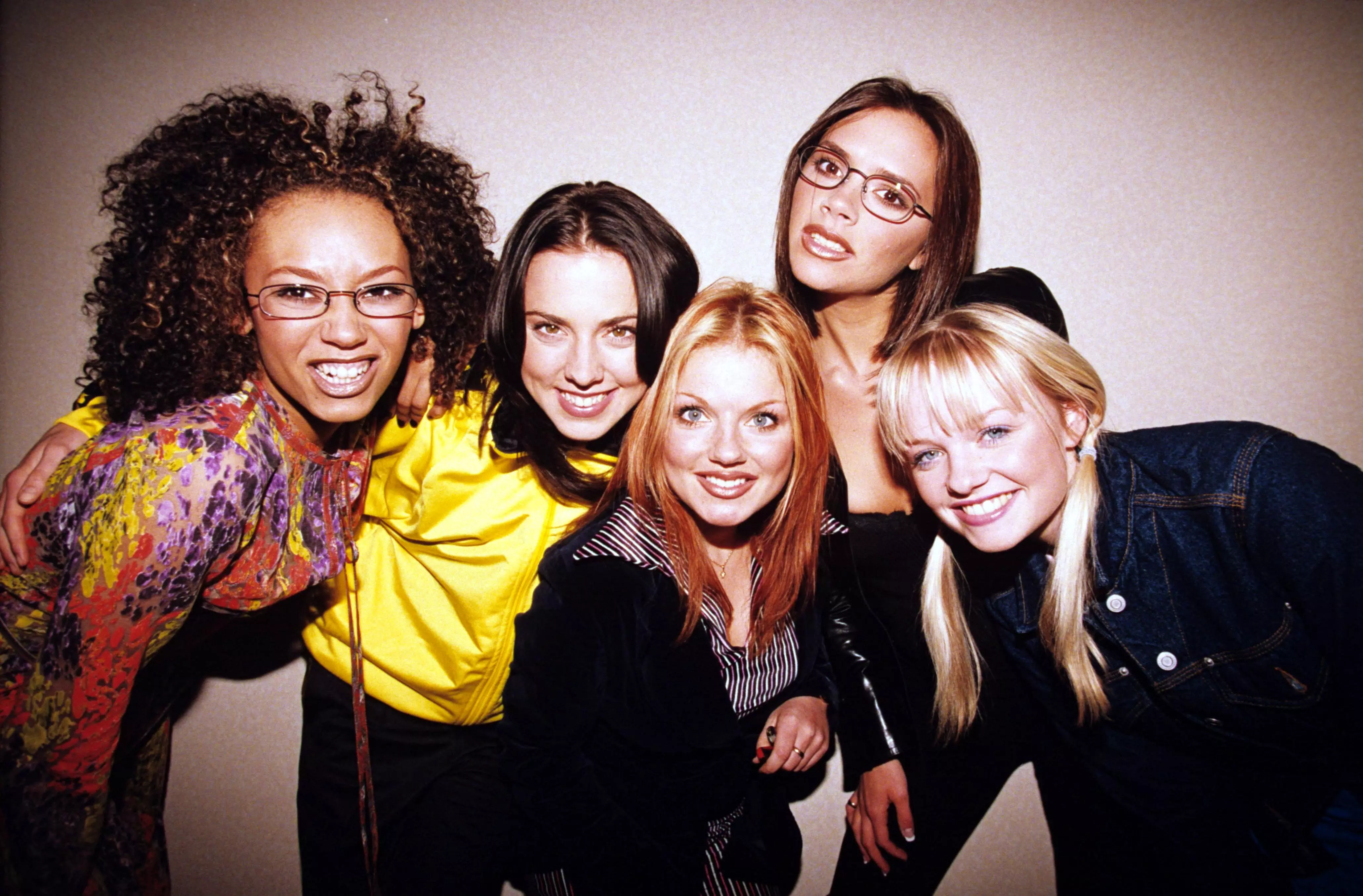
On This Day In Music: Spice Girls Release "Wannabe," Their Iconic Debut Single
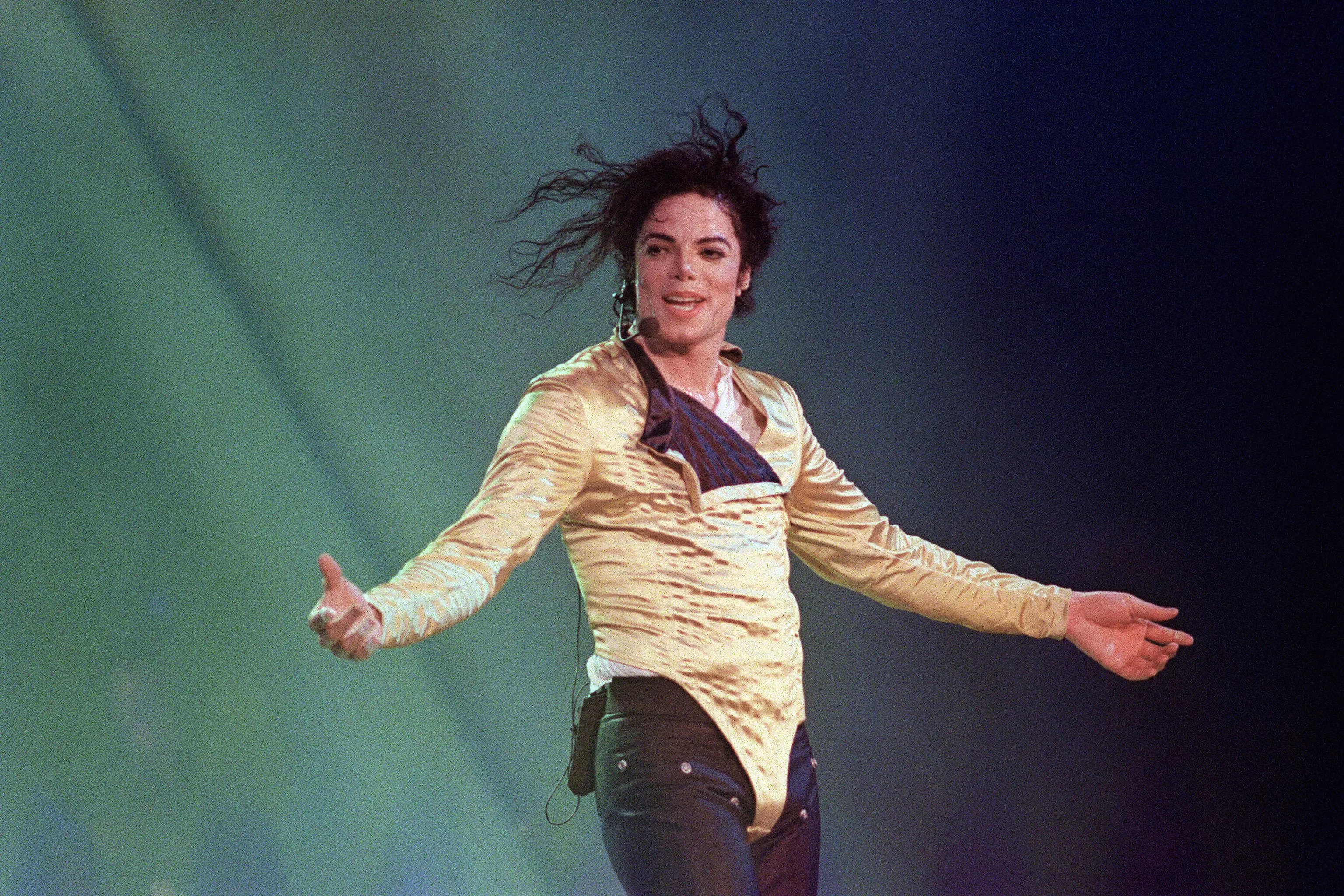
On This Day In Music: Michael Jackson Passes Away In Los Angeles At Age 50
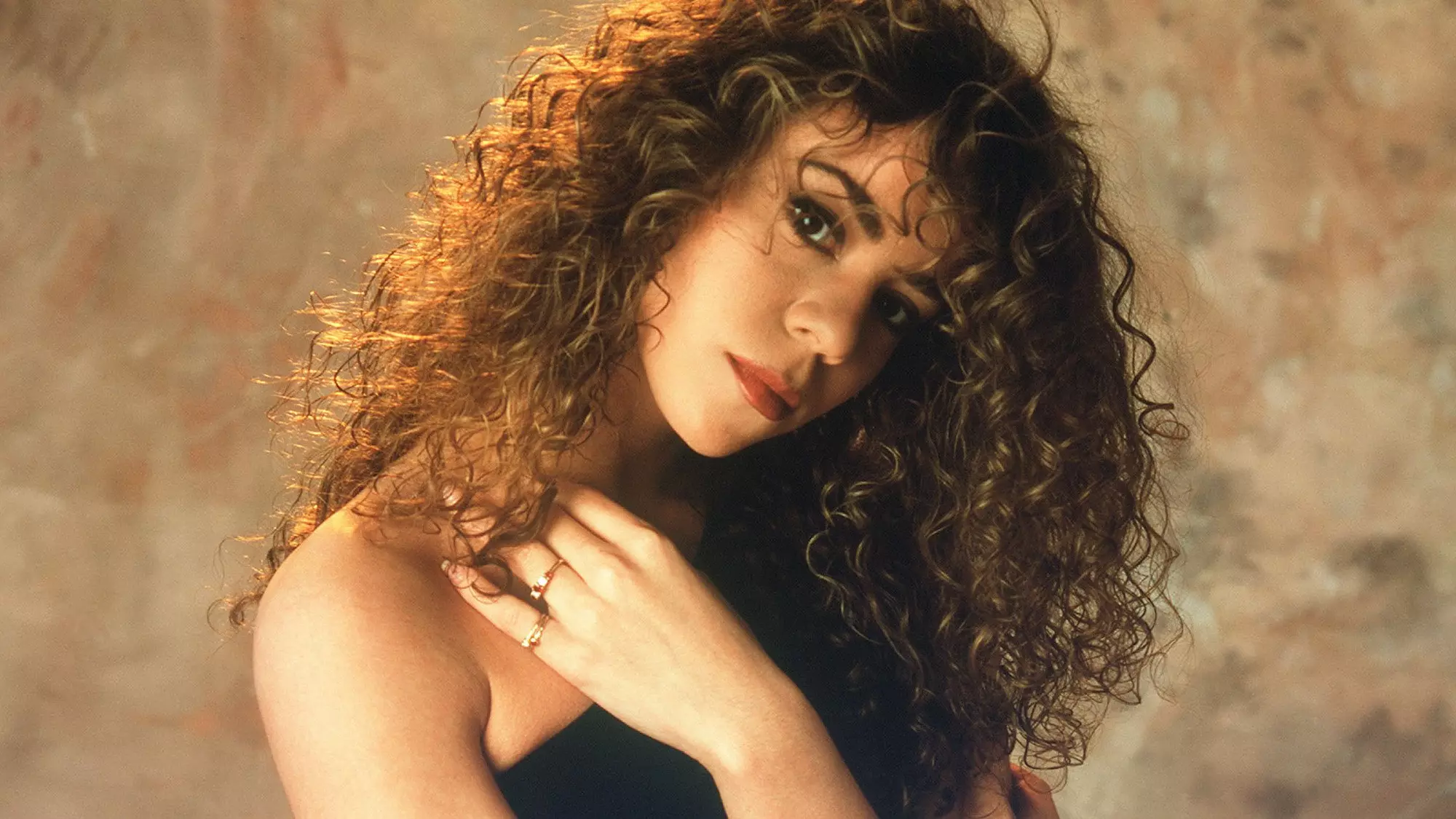
On This Day In Music: Mariah Carey Releases Her Self-Titled Debut Album
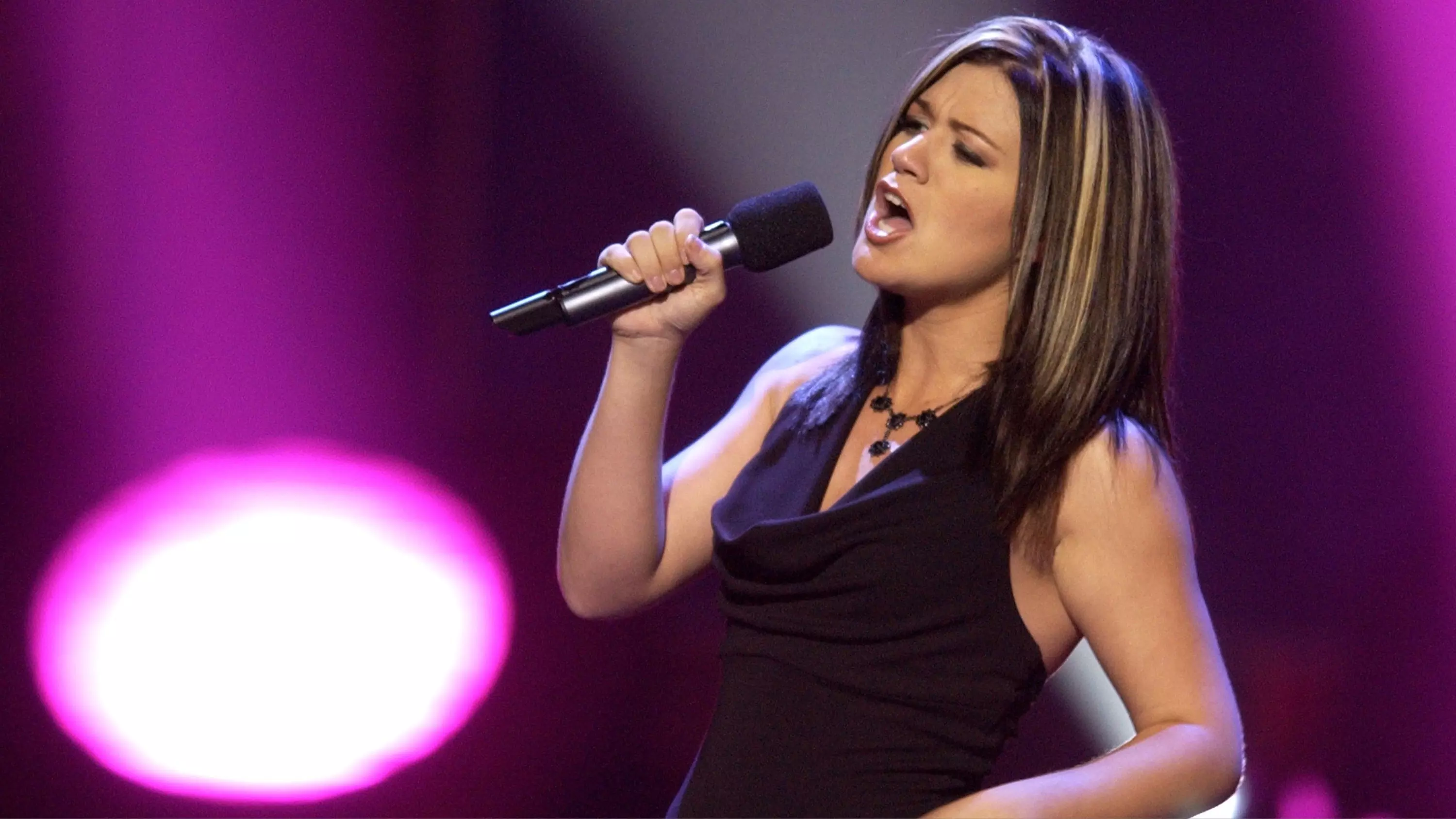
On This Day In Music: "American Idol" Premieres On Fox Network
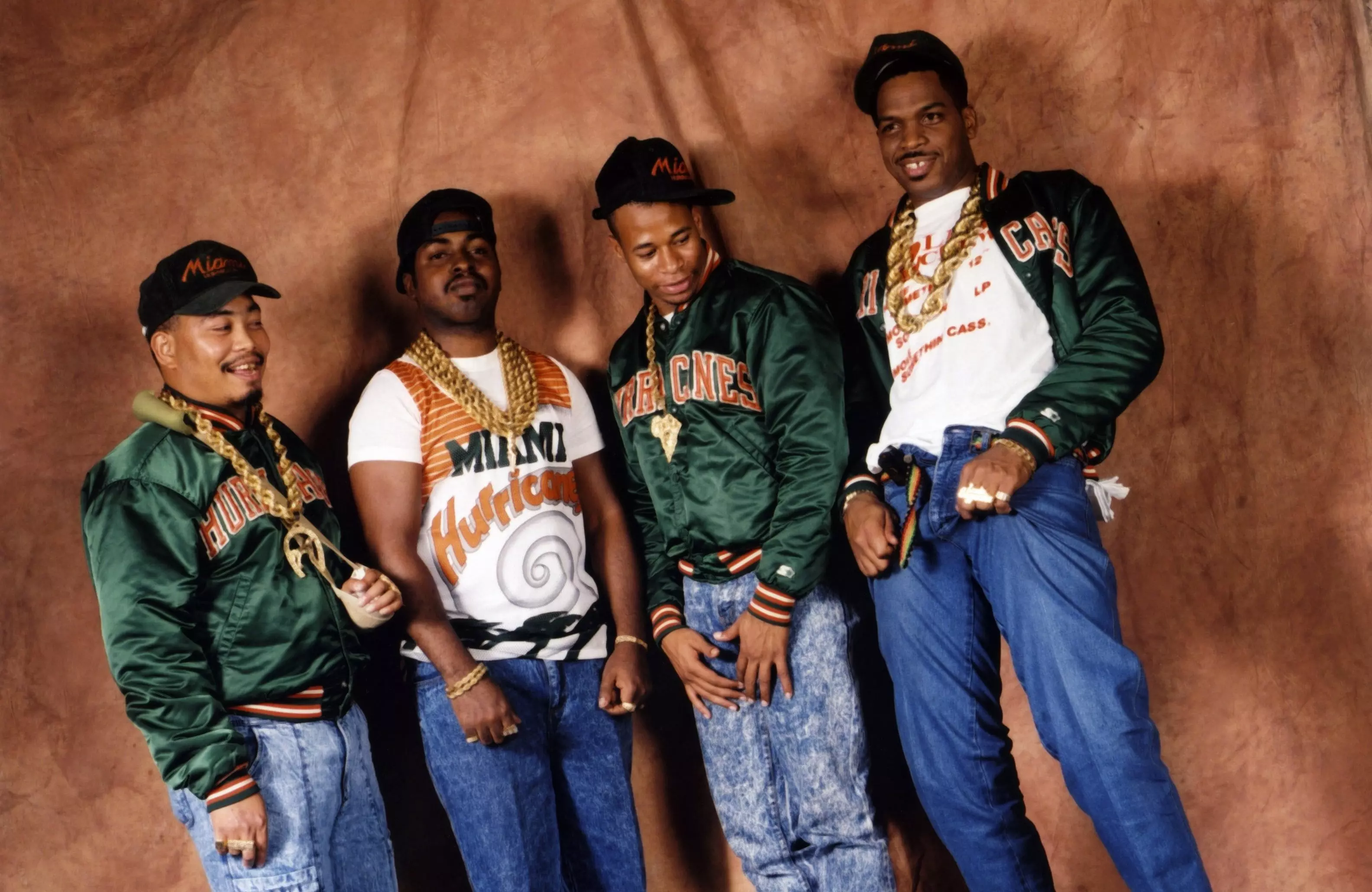
On This Day In Music: 2 Live Crew's 'As Nasty As They Wanna Be' Becomes First Album Declared Legally Obscene, Anticipates First Amendment Cases
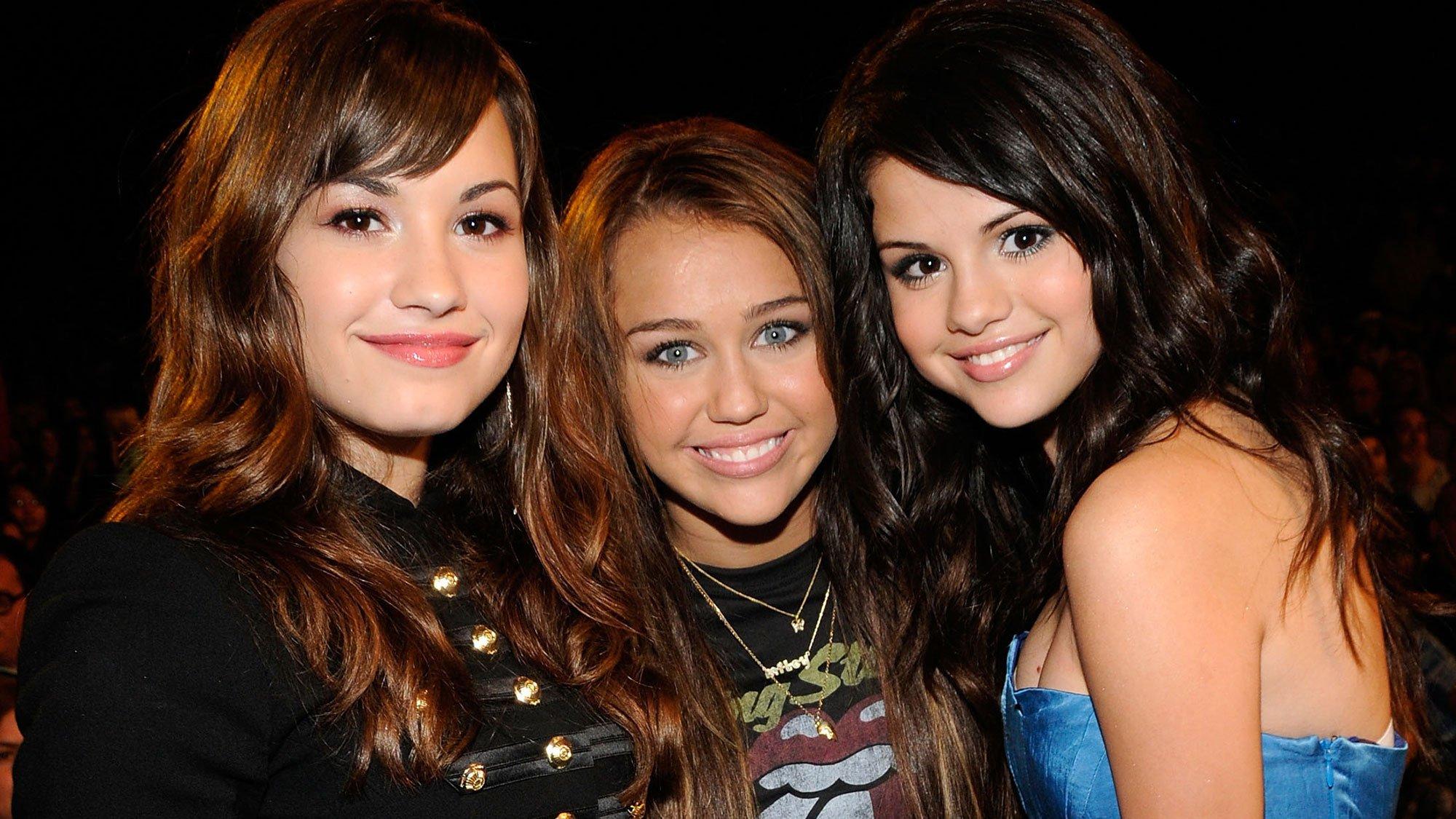
Photo: Kevin Mazur/TCA 2008/WireImage/Getty Images
feature
Disney's Golden Age Of Pop: Revisit 2000s Jams From Miley Cyrus, Selena Gomez & More
As Disney Music Group celebrates its defining era of superstars and franchises, relive the magic of the 2000s with a playlist of hits from Hilary Duff, Jesse McCartney and more.
"...and you're watching Disney Channel!" For anyone who grew up in the 2000s, those five words likely trigger some pretty vivid imagery: a glowing neon wand, an outline of Mickey Mouse's ears, and every Disney star from Hilary Duff to the Jonas Brothers.
Nearly 20 years later, many of those child stars remain instantly recognizable — and often mononymous — to the millions of fans who grew up with them: Miley Cyrus, Selena Gomez and Demi Lovato. Nick, Kevin and Joe.
Each of those names has equally memorable music attached to it — tunes that often wrap any given millennial in a blanket of nostalgia for a time that was, for better or for worse, "So Yesterday." And all of those hits, and the careers that go with them, have the same starting point in Hollywood Records, Disney Music Group's pop-oriented record label.
This time in Disney's history — the core of which can be traced from roughly 2003 to 2010 — was impactful on multiple fronts. With its music-oriented programming and multi-platform marketing strategies, the network launched a procession of teen idols whose music would come to define the soundtrack to millennials' lives, simultaneously breaking records with its Disney Channel Original Movies, TV shows and soundtracks.
Now, two decades later, Disney Music Group launched the Disney 2000s campaign, honoring the pivotal, star-making era that gave fans a generation of unforgettable pop music. The campaign will last through August and lead directly into D23 2024: The Ultimate Fan Event with special vinyl releases of landmark LPs and nostalgic social media activations occurring all summer long. April's campaign activation was Disney 2000s Weekend at the El Capitan Theatre in Hollywood, which featured special screenings of 2008's Hannah Montana & Miley Cyrus: Best of Both Worlds Concert and 2009's Hannah Montana: The Movie and Jonas Brothers: The 3D Concert Experience.
But before Miley and the JoBros, Hollywood Records' formula for creating relatable (and bankable) teen pop stars began with just one name: Hilary Duff. At the time, the bubbly blonde girl next door was essentially the face of the network thanks to her starring role in "Lizzie McGuire," and she'd just made the leap to the big screen in the summer of 2003 with The Lizzie McGuire Movie. In her years with Disney, Duff had dabbled in recording songs for Radio Disney, and even released a Christmas album under Buena Vista Records. However, her first album with Hollywood Records had the potential to catapult her from charming tween ingénue to bonafide teen pop star — and that's exactly what it did.
Released on August 26, 2003, Duff's Metamorphosis sold more than 200,000 copies in its first week and debuted at No. 2 on the Billboard 200. The following week, the bubblegum studio set performed the rare feat of rising from No. 2 to No. 1, making the then-16-year-old Duff the first solo artist under 18 to earn a No. 1 album since Britney Spears.
The album's immediate success was no fluke: Within a matter of months, Metamorphosis had sold 2.6 million copies. Music videos for its radio-friendly singles "So Yesterday" and "Come Clean" received constant airplay between programming on the Disney Channel. (The latter was eventually licensed as the theme song for MTV's pioneering teen reality series "Laguna Beach: The Real Orange County," giving it an additional boost as a cultural touchstone of the early '00s.) A 33-date North American tour soon followed, and Hollywood Records officially had a sensation on their hands.
Naturally, the label went to work replicating Duff's recipe for success, and even looked outside the pool of Disney Channel stars to develop new talent. Another early signee was Jesse McCartney. With a soulful croon and blonde mop, the former Dream Street member notched the label another big win with his 2004 breakout hit "Beautiful Soul."
"When 'Beautiful Soul' became the label's first No. 1 hit at radio, I think that's when they really knew they had something," McCartney tells GRAMMY.com. "Miley [Cyrus] and the Jonas Brothers were signed shortly after that success and the rest is history.
"The thing that Disney really excelled at was using the synergy of the channel with promoting songs at pop," he continues. "I did appearances on 'Hannah Montana' and 'The Suite Life of Zack & Cody' and my music videos were pushed to Disney Channel. The marketing was incredibly brilliant and I don't think there has been anything as connected with an entire generation like that since then."
By 2006, Disney had nearly perfected its synergistic formula, continually launching wildly popular tentpole franchises like High School Musical and The Cheetah Girls, and then giving stars like Vanessa Hudgens and Corbin Bleu recording contracts of their own. (Curiously, the pair's HSM co-star Ashley Tisdale was never signed to Hollywood Records, instead releasing her first two solo albums with Warner.)
Aly Michalka showed off her vocal chops as sunny girl next door Keely Teslow on "Phil of the Future," and fans could find her off-screen as one half of sibling duo Aly & AJ. In between their 2005 debut album Into the Rush and its electro-pop-charged follow-up, 2007's Insomniatic, Aly and her equally talented younger sister, AJ, also headlined their own Disney Channel Original Movie, Cow Belles. (Duff also helped trailblaze this strategy with her own early DCOM, the ever-charming Cadet Kelly, in 2002, while she was simultaneously starring in "Lizzie McGuire.")
Even after years of proven success, the next class of stars became Disney's biggest and brightest, with Miley Cyrus, Selena Gomez, Demi Lovato and the Jonas Brothers all joining the network — and record label — around the same time. "Hannah Montana" found Cyrus playing a spunky middle schooler by day and world-famous pop star by night, and the network leveraged the sitcom's conceit to give the Tennessee native (and daughter of '90s country heartthrob Billy Ray Cyrus) the best of both worlds.
After establishing Hannah as a persona, the series' sophomore soundtrack introduced Miley as a pop star in her own right thanks to a clever double album that was one-half Hannah's music and one-half Miley's. It's literally there in the title: Hannah Montana 2: Meet Miley Cyrus.
From there, Cyrus' stardom took off like a rocket as she scored back-to-back No.1 albums and a parade of Top 10 hits like "See You Again," "7 Things," "The Climb," "Can't Be Tamed," and the ever-so-timeless anthem "Party in the U.S.A."
At the same time, Gomez had top billing on her own Disney Channel series, the magical (but less musical) "Wizards of Waverly Place." That hardly stopped her from launching her own music career, though, first by fronting Selena Gomez & the Scene from 2008 to 2012, then eventually going solo with the release of 2013's Stars Dance after the "Wizards" finale aired.
For her part, Lovato — Gomez's childhood bestie and "Barney & Friends" costar — got her big break playing Mitchie Torres in Camp Rock alongside the Jonas Brothers as fictional boy band Connect 3, led by Joe Jonas as the swaggering and floppy-haired Shane Gray. Much like Duff had five years prior in the wake of The Lizzie McGuire Movie, Lovato released her debut solo album, 2008's Don't Forget, just three months after her DCOM broke records for the Disney Channel.
Building off their chemistry from the movie musical, nearly the entirety of Don't Forget was co-written with the Jonas Brothers, who released two of their own albums on Hollywood Records — 2007's Jonas Brothers and 2008's A Little Bit Longer — before getting their own short-lived, goofily meta Disney series, "Jonas," which wrapped weeks after the inevitable Camp Rock sequel arrived in September 2010.
As the 2000s gave way to the 2010s, the Disney machine began slowing down as its cavalcade of stars graduated to more grown-up acting roles, music and careers. But from Duff's Metamorphosis through Lovato's 2017 LP, Tell Me You Love Me, Hollywood Records caught lightning in a bottle again and again and again, giving millennials an entire generation of talent that has carried them through adulthood and into the 2020s.
To commemorate the Disney 2000s campaign, GRAMMY.com crafted a playlist to look back on Disney's golden age of pop with favorite tracks from Hilary Duff, Vanessa Hudgens, the Jonas Brothers, Miley Cyrus and more. Listen and reminisce below.
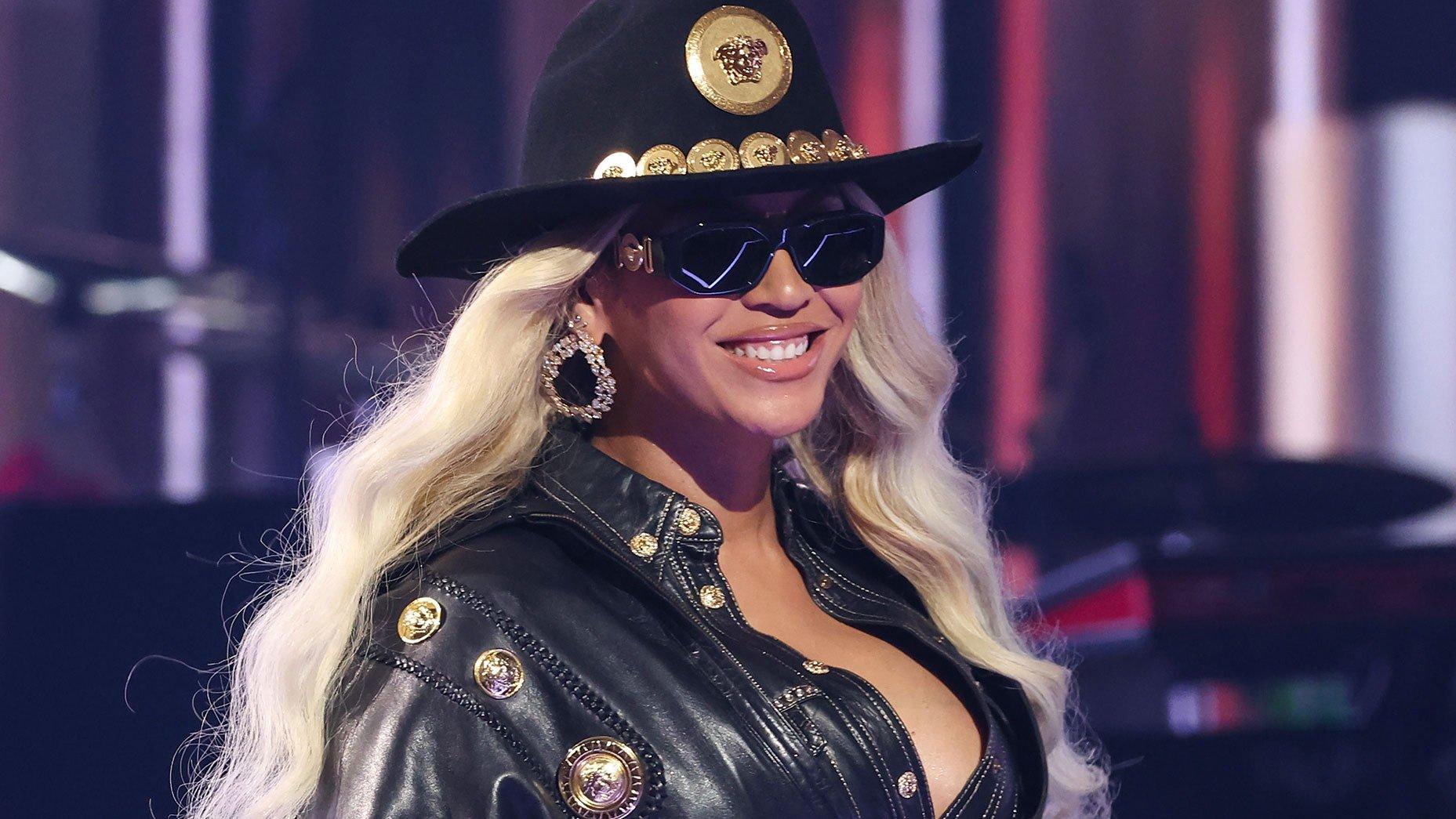
Photo: Kevin Winter/Getty Images for iHeartRadio
feature
Beyond Country: All The Genres Beyoncé Explores On 'Cowboy Carter'
On 'COWBOY CARTER,' Beyoncé is free. Her eighth studio album is an unbridled exploration of musical genres — from country to opera and R&B — that celebrates the fluidity of music and her Texas roots.
"Genres are a funny little concept, aren't they? In theory, they have a simple definition that's easy to understand. But in practice, well, some may feel confined."
With those words, spoken on "SPAGHETTII" by Linda Martell — the first commercially successful Black female artist in country music and the first to play the Grand Ole Opry solo — Beyoncé provides a proxy response to her original call on Instagram 10 days before COWBOY CARTER was released: "This ain’t a Country album. This is a “Beyoncé” album."
She delivered on that promise with intent. Through a mix of homage and innovation, Beyoncé's latest is a 27-track testament to her boundless musicality and draws from a rich aural palette. In addition to its country leanings, COWBOY CARTER includes everything from the soulful depths of gospel to the intricate layers of opera.
Beyoncé's stance is clear: she's not here to fit into a box. From the heartfelt tribute in "BLACKBIIRD" to the genre-blurring tracks like "YA YA," Beyoncé uses her platform to elevate the conversation around genre, culture, and history. She doesn't claim country music; she illuminates its roots and wings, celebrating the Black artists who've shaped its essence.
The collective album proves no genre was created or remains in isolation. It's a concept stoked in the words of the opening track, "AMERIICAN REQUIEM" when Beyonce reflects, "Nothing really ends / For things to stay the same they have to change again." For country, and all popular genres of music to exist they have to evolve. No sound ever stays the same.
COWBOY CARTER's narrative arc, from "AMERICAN REQUIEM" to "AMEN," is a journey through American music's heart and soul, paying tribute to its origins while charting a path forward. This album isn't just an exploration of musical heritage; it's an act of freedom and a declaration of the multifaceted influence of Black culture on American pop culture.
Here's a closer look at some of some of the musical genres touched on in act ii, the second release of an anticipated trilogy by Beyoncé, the most GRAMMY-winning artist of all-time:
Country
Before COWBOY CARTER was even released, Beyoncé sparked critical discussion over the role of herself and all Black artists in country music. Yet COWBOY CARTER doesn't stake a claim on country music. Rather, it spotlights the genre through collaborations with legends and modern icons, while championing the message that country music, like all popular American music and culture, has always been built on the labor and love of Black lives.
It's a reckoning acknowledged not only by Beyoncé's personal connection to country music growing up in Texas, but the role Black artists have played in country music rooted in gospel, blues, and folk music.
Enter The World Of Beyoncé
Beyond Country: All The Genres Beyoncé Explores On 'Cowboy Carter'
Beyoncé Is The Genre-Bending Queen On 'Cowboy Carter': 5 Takeaways From Her New Album
Beyoncé's New Album 'Cowboy Carter' Is Here: Check Out The Featured Artists, Cover Songs, And Tracklist
Everything We Know About Beyoncé's New Album, 'Cowboy Carter': Two New Singles, Tracklist, A Shift To Country & More
How Beyoncé Is Honoring Black Music History With 'Cowboy Carter,' "Texas Hold Em," 'Renaissance' & More
Songbook: The Complete Guide To The Albums, Visuals & Performances That Made Beyoncé A Cultural Force
A Timeline Of Beyoncé's GRAMMY Moments, From Her First Win With Destiny's Child to Making History With 'Renaissance'
How Many GRAMMYs Has Beyoncé Won? 10 Questions About The 'Renaissance' Singer Answered

Watch Beyoncé Make GRAMMY History With Her 32nd Win In 2023 | GRAMMY Rewind
6 Takeaways From 'Renaissance: A Film By Beyoncé'
Beyoncé's 'Dangerously In Love' Turns 20: How The Solo Debut Foreshadowed The Singer's Icon Status
5 Takeaways From Beyoncé's New Album 'Renaissance'

How Beyoncé Has Empowered The Black Community Across Her Music And Art | Black Sounds Beautiful

The Creative Rebirth Of Beyoncé On '4' | For The Record
Country legends, Dolly Parton ("DOLLY P", "JOLENE," and "TYRANT"), Willie Nelson ("SMOKE HOUR" and "SMOKE HOUR II"), and Martell ("SPAGHETTII and "THE LINDA MARTELL SHOW") serve mainly as spoken-word collaborators, becoming MCs for Queen Bey. Some of the most prolific country music legends receiving her in a space where she has been made to feel unwelcome in music (most notably with the racism surrounding her 2016 CMA performance of "Daddy Lessons" with the Dixie Chicks) provides a prolific release of industry levies. Martell, a woman who trod the dark country road before Bey, finally getting her much-deserved dues appears as an almost pre-ordained and poetic act of justice.
"BLACKBIIRD," a version of the Beatles' civil rights era song of encouragement and hope for the struggle of Black women is led softly by Beyoncé, backed by a quartet of Black female contemporary country songbirds: Tanner Adell, Brittney Spencer, Tiera Kennedy, and Reyna Roberts.
Beyoncé holds space for others, using the power of her star to shine a light on those around her. These inclusions rebuke nay-sayers who quipped pre-release that she was stealing attention from other Black country artists. It also flies in the faces that shunned and discriminated against her, serving as an example of how to do better. The reality that Beyoncé wasn't stealing a spotlight, but building a stage for fellow artists, is a case study in how success for one begets success for others.
Read more: 8 Country Crossover Artists You Should Know: Ray Charles, The Beastie Boys, Cyndi Lauper & More
Gospel, Blues, & Folk (American Roots)
As is Beyoncé's way, she mounts a case for country music with evidence to back up her testimony. She meanders a course through a sequence of styles that serve as the genre's foundation: gospel, blues, and folk music.
"AMERIICAN REQUIEM" and "AMEN" bookend the album with gospel-inspired lyrics and choir vocals. The opener sets up a reflective sermon buoyed by the sounds of a reverberating church organ, while the closer, with its introspective lyrics, pleads for mercy and redemption. The main verse on "AMEN", "This house was built with blood and bone/ The statues they made were beautiful/ But they were lies of stone," is complemented by a blend of piano, and choral harmonies.
Hymnal references are interlaced throughout the album, particularly in songs like "II HANDS II HEAVEN" and in the lyrical nuances on "JUST FOR FUN." In the later track, Beyoncé's voice soars with gratitude in a powerful delivery of the lines, "Time heals everything / I don't need anything / Hallelujah, I pray to her."
The gospel-inspired, blues-based "16 CARRIAGES" reflects the rich history of country songs borrowing from the blues while simultaneously calling back to songs sung by field laborers in the colonial American South. "Sixteen dollars, workin' all day/ Ain't got time to waste, I got art to make" serves as the exhausted plea of an artist working tirelessly long hours in dedication to a better life.
Rhiannon Giddens, a celebrated musician-scholar, two-time GRAMMY winner, and Pulitzer Prize recipient, infuses "TEXAS HOLD 'EM" with her profound understanding of American folk, country, and blues. She plays the viola and banjo, the latter tracing its origins to Sub-Saharan West Africa and the lutes of ancient Egypt. Through her skilled plucking and bending of the strings, Giddens bridges the rich musical heritage of Africa and the South with the soul of country, blues, and folk music.
Pop, Funk, Soul & Rock 'n' Roll
All in, Beyoncé is a pop star who is wrestling with labels placed on her 27-year career in COWBOY CARTER. Fittingly, she brings in two other pop artists known for swimming in the brackish water between country and pop, Miley Cyrus and Post Malone. Her intentional inclusion of two artists who have blurred genres without much cross-examination begs the question, Why should Beyoncé's sound be segregated to a different realm?
On "YA YA" Linda Martell returns as the listener's sonic sentinel, introducing the track like a lesson plan: "This particular tune stretches across a range of genres. And that’s what makes it a unique listening experience." The tune sinks into the strummed chords of Nancy Sinatra's "These Boots Are Made for Walkin'" before leaping into a fiery dance track that features reimagined lyrics from the Beach Boys, with soulful vocal flourishes and breaks that show the throughline connection between '60s era rock, funk, and pop music.
Robert Randolph lends his hands on "16 CARRIAGES" with a funk-infused grapple on his pedal-steel guitar. It's a style he honed through his early years touring and recording with his family band and later in his career as an in-demand collaborator working with names including the Allman Brothers, and Norah Jones.
The lesson is solidified as the album transitions into an interlude on "OH LOUISIANA," featuring a sped-up sample of a classic track by Chuck Berry. This moment emphasizes the pop superstar's nod to civil rights era music history, spotlighting a controversial artist celebrated for his pioneering contributions to rock 'n' roll. (It's a part of music history Beyoncé knows well, after starring as Etta James in the 2008 film Cadillac Records, a veiled biopic of the legendary Chicago label Chess Records.)
Classical & Opera
Opera was missing from many listeners' Beyoncé Bingo card, but didn't surprise those that know her background. Beyoncé was trained for over a decade starting at an early age by her voice teacher David Lee Brewer, a retired opera singer who once lived with the Knowles family.
COWBOY CARTER gives sing-along fans a 101 opera class with "DAUGHTER." In Italian, Beyoncé sings passages from the 1783 Italian opera "Caro Mio Ben," composed by Giuseppe Tommaso Giovanni Giordani. The aria is a classic piece of vocal training that fittingly shows off her full range — taking us back to the earliest days of her vocal teachings.
Hip-Hop & R&B
Midway through the album on "SPAGHETTII" Beyoncé announces, "I ain't no regular singer, now come get everythin' you came for," landing right where expectations have confined her: in the throes of a romping beat, experimenting with sounds that blend hip-hop with R&B and soul. The track notably highlights the talent of Nigerian American singer/rapper Shaboozey, who also shows up to the rodeo on "SWEET HONEY BUCKIN'" brandishing his unique mix of hip-hop, folk-pop, and country music.
Beyoncé worked with longtime collaborator Raphael Saadiq on this album, a career legend in the R&B industry, who lends his mark to several tracks on which he wrote, produced, and played multiple instruments. Beyoncé also utilizes the Louisiana songwriter Willie Jones on "JUST FOR FUN," an artist who draws on a contemporary blend of country, Southern rap, and R&B in the hymnal ballad.
The violin-heavy "TYRANT" and "SPAGHETTII" both underscore hip-hop's long love affair with the classical string instrument (See: Common's "Be," and Wu Tang Clan's "Reunited" as the tip of that particular iceberg) with a blend of soulful R&B lyrics paired with beat-based instrumentalization.
In a world quick to draw lines and label sounds, Beyoncé's COWBOY CARTER stands as a vibrant mosaic of musical influence and innovation. Ultimately, Beyoncé's COWBOY CARTER isn't seeking anyone's acceptance. As a Texan once told she didn't belong, her critical response claps back at this exclusion. It's also a reminder that in the hands of a true artist, music is limitless.
Run The World: Why Beyoncé Is One Of The Most Influential Women In Music History
